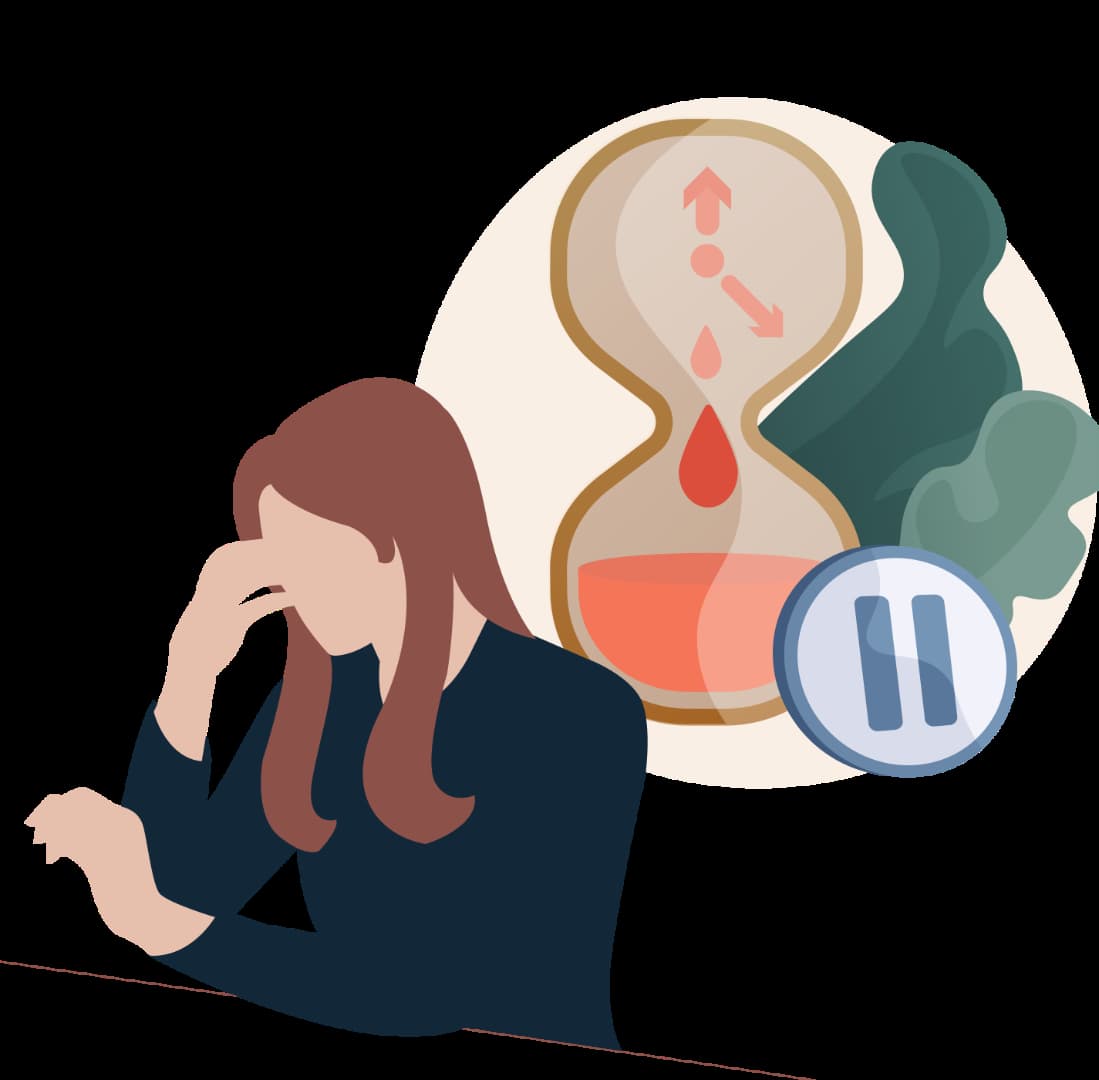This article has been compiled by Vaibhavi Kodnani, a content writer at Proactive For Her.
Menopause is a natural phase in every woman’s life. Meno relates to menstruation, while pause means stop. So, when a woman stops menstruating for 12 consecutive months, she attains menopause. The decline of the female sex hormones during menopause brings various changes in the body. It takes a toll on the physical and mental health of women.
Hot flashes and night sweats are some of the common symptoms of menopause that also affect sleep. Apart from that, the body undergoes many other physical changes such as vaginal atrophy, recurrent UTI, skin and hair dryness, hair thinning, and sore breasts. The bone density also starts decreasing, leading to joint pain and stiffness.
Psychological distress presents itself with symptoms like irritability, mood changes, anxiety, depression, and memory loss - all of which can affect the quality of life. As a result of these hormonal imbalances and menopause symptoms, women can feel exhausted, a sign of menopause fatigue.
As a result of these hormonal imbalances and menopause symptoms, women can feel exhausted, a sign of menopause fatigue.

What are the symptoms of menopause fatigue?
If you notice any of the following signs, you may be experiencing menopause fatigue. It is advised not to overlook these signs and instead visit a doctor for guidance and support.
- Exhaustion
- Frequent mood swings
- Irritability
- Constant lack of energy
- Daytime sleepiness
- Recurrent muscle pain; calf muscle pain
- Overall body ache
- Back pain
What are the risk factors for menopause fatigue?
Menopause fatigue can affect everyone differently and in varying intensities. Some of the reasons why you may be more prone to fatigue include:
- Abrupt attainment of menopause
- Associated comorbidities
- Low levels of Vitamin D and Vitamin B12 levels
How long does menopause fatigue last?
It will vary from person to person and can last from a few months to a few years.
How to manage menopause fatigue?
It is common to experience some level of fatigue around menopause. With a few easy tips, you can handle menopause fatigue better.
- Talk to your doctor about your symptoms
It is best to tell your doctor about your signs of fatigue. They can help chart out a treatment plan accordingly. It would mostly mean incorporating some lifestyle and diet changes into your life. If your symptoms are too severe, your doctor may suggest medications and therapies as well. Sometimes, the cause behind the fatigue may be something other than menopause. Hence, talk to your doctor for an appropriate and early diagnosis and treatment.
2.Start taking Vitamin D supplements
As declining bone density is one of the causes of menopause fatigue, taking Vitamin D supplements can prevent thinning of bones. Many studies have found the link between Vitamin D and preventing heart disease, diabetes, cancer, and weight gain.
3. Include exercise in your daily routine
Getting physical activity every day is crucial to beat fatigue. Although it is hard to exercise when feeling tired, it is about building a habit. Explore the options to find something that you will enjoy and continue willingly. It could be walking, running, yoga, dance or anything else. Don’t forget about the umpteen other benefits exercising has apart from managing fatigue, such as improved sleep quality, weight management and uplifting the mood.
4. Consume a healthy diet
Eating a healthy diet may seem like a common solution, but it can work wonders if you follow it diligently. The key is to eat fresh, home-cooked and balanced meals as much as possible. Avoid anything made of refined carbs and refined sugars. You must limit spicy and fatty foods to manage hot flashes and achieve better sleep quality.
5. Keep yourself hydrated
Dehydration can aggravate fatigue and cause difficulty in concentrating. Therefore, make sure you drink enough water during the day to feel energised and overcome tiredness. Make it a habit to carry water with you wherever you go.
What tests should you do if you notice any fatigue symptoms?
A few tests are helpful to determine the exact cause of the fatigue and guide the required line of treatment.
- Serum Vitamin D
- Vitamin B12
- Complete blood count
- DEXA scan for bone density
Is menopause fatigue normal?
With so many drastic hormonal and bodily changes happening, menopause fatigue is commonly observed in women. It can be alleviated with the help of some lifestyle and diet changes. However, severe fatigue is not normal, and you must consult a doctor upon experiencing recurrent extreme fatigue episodes.
Bottom Line
Menopause is a natural process that comes with its own set of challenges. The sudden and drastic changes in the body can cause fatigue symptoms that can interrupt your daily life. It’s not a matter of concern, and you can deal with it by maintaining a healthy diet and lifestyle.
Disclaimer: This information is educational and should not be construed as medical advice. Please consult your doctor before making any dietary changes or adding supplements.
ProactiveForHer is a digital clinic for women, offering accessible, personalised, and confidential healthcare solutions. We offer out-patient care, diagnostic services and programs for various health concerns of Indian women, across their lifetime - from puberty to pregnancy to menopause.

